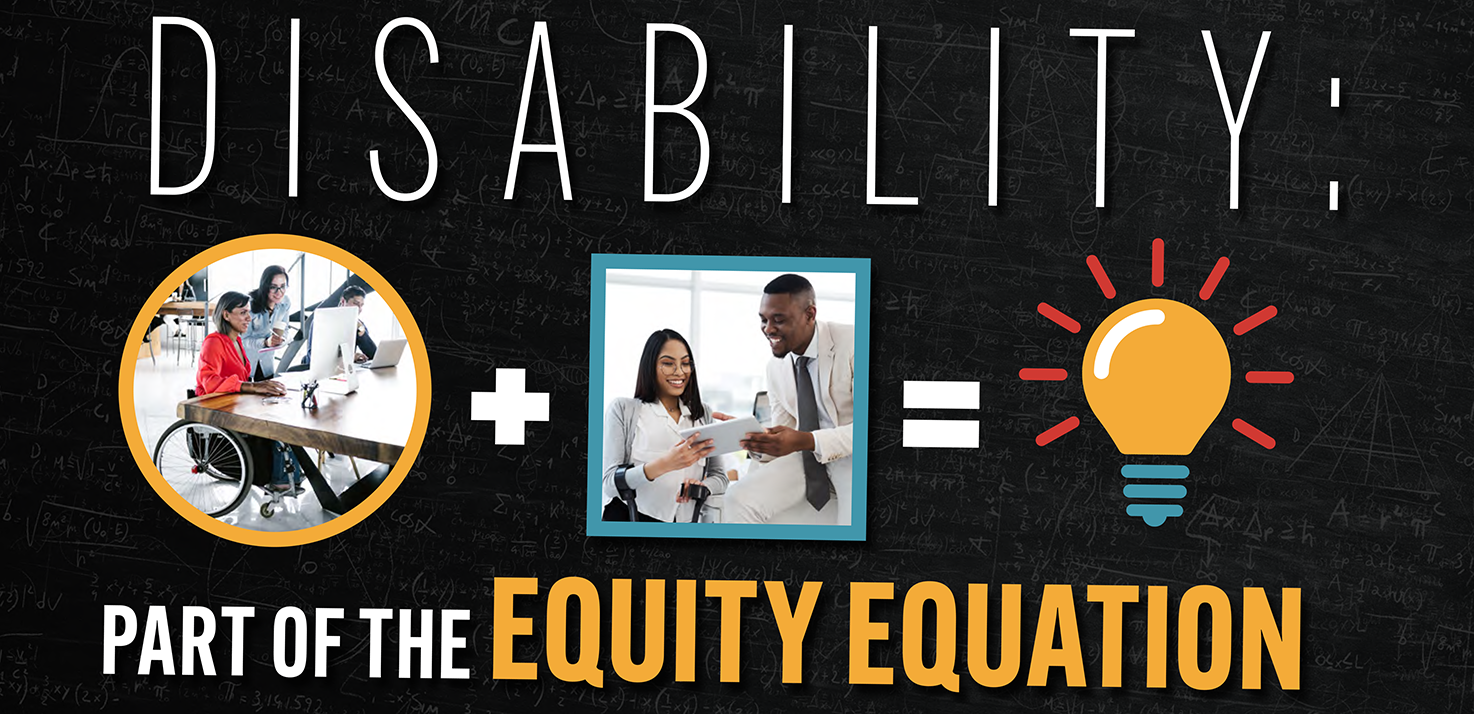Things You May Not Know About Disability Employment

October is National Disability Employment Awareness Month. Its purpose is to increase awareness about disability employment issues and celebrate the many and varied contributions of workers with disabilities. All play an important part in fostering a more equitable and inclusive workforce, one where all people are recognized for their abilities. Learn more at www.dol.gov/NDEAM.
If you or someone you know well has a disability, you may know quite a lot about disability employment. If not, here are some quick facts from the Bureau of Labor Statistics:
- In 2021, 19.1 percent of persons with a disability were employed, up from 17.9 percent in 2020.
- Among persons with a disability, the jobless rates for Blacks (15.1 percent) and Hispanics (13.3 percent) were higher than the rates for Whites (9.3 percent) and Asians (8.5 percent) in 2021.
- A larger share of workers with a disability were self-employed in 2021 than were those with no disability (9.6 percent versus 6.4 percent).
- The proportion of persons employed in government was about the same for both persons with a disability and persons without a disability (13.9 percent and 13.6 percent, respectively).
More importantly …
- Employers report 30 percent higher profit margins and 28 percent higher revenue after making a concerted effort to hire persons with disabilities (“Getting to Equal 2018: The Disability Inclusion Advantage” (Accenture)).
- Most employers report no cost or low cost for accommodating employees with disabilities, and those who do provide accommodations report accommodations are effective (“Costs and Benefits of Accommodation” (Job Accommodation Network, 10/21/2020)).
- People with disabilities are innovative and creative. In the report linked above, David Casey, Vice President of Workforce Strategies and Chief Diversity Officer for CVS Health, said: “People with disabilities tend to be some of the most creative, innovative and, quite frankly, most loyal employees. A person with a disability wakes up every day thinking about being innovative—that is a skill set. That ability to problem solve is innate to them. Our training programs quickly went from philanthropy to skill search.”
Do any of the points listed above dispel myths you may have heard about disability employment? Over the decades, I’ve known many people to say that employees with disabilities cost too much, are difficult to supervise, and so much more. They were (and perhaps some still are) unenlightened.

While not specific to disability employment, the Age Friendly Seattle Community Guide to Accessible Events & Meetings provides useful tips for staff and the public.
If you or someone you know is an employer and this is new territory, it’s important to know that resources are available—both for workers with disabilities and for current and potential employers of people who live with a disability. The Governor’s Committee on Disability Issues & Employment lists many resources here. The Northwest ADA Center offers a wealth of resources and assistance for employers and employees. In addition, large employers have ADA Compliance Programs—go to their websites and search for “ADA Coordinator” or “reasonable accommodations”). If you are a supervisor or manager, you can contact your ADA Coordinator for advice and support.
If you are a job seeker or an employee with a disability, you can also contact your ADA Coordinator if you have a concern. It’s always good to contact your supervisor or manager first, but that isn’t required. If a concern advances to a disability employment complaint, you can contact your office for civil rights (e.g., Seattle Office for Civil Rights and Tacoma Human Rights Commission) or contact the Washington State Human Rights Commission to request support.
In 2020, to celebrate the 30th anniversary of the federal Americans with Disabilities Act, the Seattle Channel streamed three hours of programming about disabilities and accessibility. Specific to employment, scroll down the video description for links to “Bottom Dollars,” a Rooted in Rights video, and two videos about supported employment at King County.
Disability employment IS part of the equity equation. Learn and pass on new-found knowledge to others.
 Contributor Irene Stewart, Communications Manager for the Seattle Human Services Department, is editor of AgeWise King County. She has worked on accessibility issues for years, including production of the Age Friendly Seattle Community Guide to Accessible Events & Meetings.
Contributor Irene Stewart, Communications Manager for the Seattle Human Services Department, is editor of AgeWise King County. She has worked on accessibility issues for years, including production of the Age Friendly Seattle Community Guide to Accessible Events & Meetings.
This article originally appeared in the October 2022 issue of AgeWise King County.
![Aging & Disability Services for Seattle & King County [logo]](https://www.agingkingcounty.org/wp-content/themes/sads/images/seattle-ads-logo.png)
